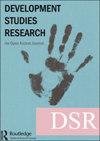企业社会责任的演变边界:韩国PPP-ODA在国际发展中的作用
Q2 Social Sciences
引用次数: 0
摘要
近年来,随着人们越来越重视私营部门参与解决当地和全球的社会问题,公私伙伴关系已成为一种公认的现象。在此背景下,本研究重点关注企业社会责任在韩国官方发展援助框架中的扩大作用。私人利益攸关方在国际发展合作领域的预期作用和责任得到了加强。本文从公共和私营部门的角度探讨了推动这一现象的各种因素。通过分析韩国国际协力团PPP战略背景下确定的因素,对韩国国际协力机构进行了案例研究。研究发现,在目前的安排下,私营部门参与韩国国际协力团全球企业社会责任计划的动机不太可能得到满足,而公共部门则非常积极地吸引和参与企业在国外交付PPP项目。该研究提出了政策影响,如将非财务绩效指标纳入评估标准、解决行政挑战和增加PPP项目预算。本文章由计算机程序翻译,如有差异,请以英文原文为准。
Evolving boundaries of CSR: South Korea’s PPP-ODA in international development
ABSTRACT Public-private partnerships (PPPs) have become a widely recognized phenomenon in recent years, along with the rising emphasis on the private sector involvement in solving social problems both locally and globally. Against this backdrop, this study focuses on the expanded role of corporate social responsibility (CSR) in the Korean official development assistance framework. Private stakeholders’ expected roles and responsibilities in the area of international development cooperation have been augmented. The article explores the various factors driving this phenomenon from the perspectives of the public and private sectors. The case study of Korea International Cooperation Agency (KOICA) is carried out by analyzing the identified factors in the context of KOICA’s PPP strategy. The study found that the motives of the private sector to participate in KOICA’s global CSR program is less likely to be satisfied under the current arrangement whereas the public sector is highly motivated to attract and engage businesses in delivering PPP projects abroad. The study suggests policy implications such as incorporating non-financial performance indicators in evaluation criteria, resolving administrative challenges, and increasing the budget for PPP programs.
求助全文
通过发布文献求助,成功后即可免费获取论文全文。
去求助
来源期刊

Development Studies Research
Social Sciences-Development
CiteScore
3.20
自引率
0.00%
发文量
20
审稿时长
12 weeks
期刊介绍:
Development Studies Research ( DSR) is a Routledge journal dedicated to furthering debates in development studies. The journal provides a valuable platform for academics and practitioners to present their research on development issues to as broad an audience as possible. All DSR papers are published Open Access. This ensures that anyone, anywhere can engage with the valuable work being carried out by the myriad of academics and practitioners engaged in development research. The readership of DSR demonstrates that our goal of reaching as broad an audience as possible is being achieved. Papers are accessed by over 140 countries, some reaching over 9,000 downloads. The importance of the journal to impact is thus critical and the significance of OA to development researchers, exponential. Since its 2014 launch, the journal has examined numerous development issues from across the globe, including indigenous struggles, aid effectiveness, small-scale farming for poverty reduction, sustainable entrepreneurship, agricultural development, climate risk and the ‘resource curse’. Every paper published in DSR is an emblem of scientific rigour, having been reviewed first by members of an esteemed Editorial Board, and then by expert academics in a rigorous review process. Every paper, from the one examining a post-Millennium Development Goals environment by one of its architects (see Vandermortele 2014), to ones using established academic theory to understand development-imposed change (see Heeks and Stanforth 2015), and the more policy-oriented papers that contribute valuable recommendations to policy-makers and practitioners (see DSR Editor’s Choice: Policy), reaches a multidisciplinary audience.
 求助内容:
求助内容: 应助结果提醒方式:
应助结果提醒方式:


